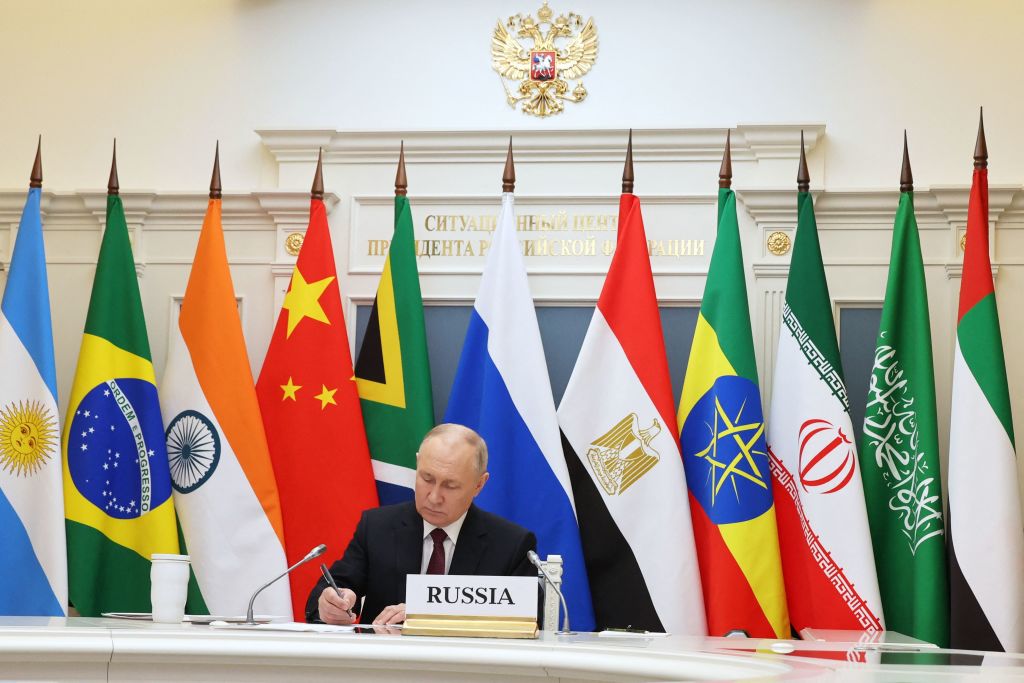- Saturday, April 19, 2025
Egypt, Ethiopia, Iran, Saudi Arabia and the United Arab Emirates became the new members while Argentina, the sixth, withdrew under its new president.

By: Shubham Ghosh
THE 16th summit of the BRICS bloc set to be held in Russia in October 2024 will be a significant moment in its history as it will be the first one since the expansion in membership to 10 nations.
On Monday (1), Egypt, Ethiopia, Iran, Saudi Arabia and the United Arab Emirates became the new entrants in the group that draws its name from its original four members — Brazil, Russia, India, China and later South Africa.
The expansion marks a notable shift in the global landscape that is marked by growing multipolarity and middle powers challenging a west-led world order. Argentina was also supposed to join as a new member but its new president Javier Milei decided to withdraw Buenos Aires’s planned entry into the grouping.
Read: Which side sought Modi-Xi talks on BRICS sidelines? India, China offer contradictory views
The last time the BRICS was expanded was in 2010 when South Africa joined, turning the bloc’s name from BRIC to BRICS.
As Moscow assumed the presidency of BRICS, Russian president Vladimir Putin said on Monday that the grouping has become a 10-nation body now with the five new members.
Top leaders of the bloc approved a proposal to admit six new members at the summit held in Johannesburg in South Africa in August last year, with effect from January 1.
In an address, Putin said, “Egypt, Ethiopia, Iran, Saudi Arabia, and the United Arab Emirates joined BRICS as new full members which is a strong indication of the growing authority of the association and its role in international affairs.”
He added that BRICS is attracting an ever increasing number of supporters and like-minded countries that share its underlying principles such as sovereign equality, openness, consensus, aspiration to form a multipolar international order and a fair global financial and trading system.
Putin also said that under Russia’s chairmanship of BRICS under the motto ‘strengthening multilateralism for equitable global development and security’ will focus on positive and constructive cooperation with all concerned countries.
“We will spare no effort to ensure that, while preserving traditions and being guided by the experience gained by the association in years past, we facilitate the harmonious integration of new participants in all formats of its activities,” he said, according to the Kremlin.
“Of course, we will consider the degree to which many other countries, about 30 of them, are prepared to join the BRICS multi-dimensional agenda in one form or another,” he said. To this end, we will start working on the modalities of a new category of BRICS partner countries, he said.
“In general, Russia will continue to promote all aspects of the BRICS partnership in three key areas: politics and security, economy and finance, and cultural and humanitarian contacts,” he said.
Putin said the priorities under the Russian presidency of the grouping will include promoting cooperation in science, high technology, healthcare, environmental protection, culture and sports.
“In total, over 200 events of different levels and types will be held in many Russian cities as part of the chairmanship,” he said.
The expanded BRICS is seen by experts as a step towards a stronger voice of the Global South on the global stage.
The expansion of the bloc is likely to create fresh investment opportunities for two of the Arab world’s largest economies – Saudi Arabia and the UAE. Despite facing global challenges, Riyadh and Abu Dhabi have sustained their respective economic growth by focusing on diversifying their economies.
In 2022, Saudi Arabia achieved an impressive annual growth rate of 8.7 per cent, the highest among the world’s 20 largest economies.
Similarly, the UAE’s commitment to diversification and non-oil sectors positions it resiliently amidst global economic challenges.
(With PTI inputs)